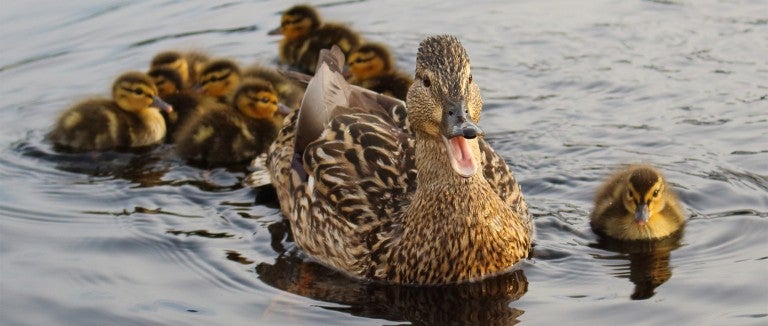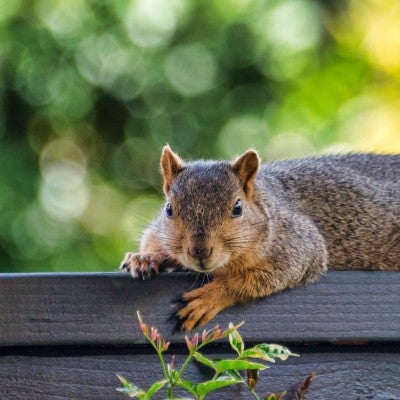Backyard swimming pools are synonymous with summer fun. But they can be deadly for wildlife.
Pool drownings are tragic, because they are preventable. Animals—from skunks, chipmunks and mice to lizards, frogs and snakes, or ducks, fledgling birds and even pets—can find themselves in a pool with no way to escape.
Wild animal babies are particularly at risk; their curiosity about these neighborhood bodies of water can take them perilously close to the edge.
Pool precautions
A few simple pool precautions can help dramatically lower the danger to animals:
- When building a pool, design lounge ledges along the sides just below the water's surface, providing shallow areas from which animals can easily escape.
- Build a fence around the pool.
- Install one or more water-exit devices such as the Skamper-Ramp or Froglog. Place these buoyant devices in the water along the pool's edge to allow animals to get out on their own.
- Place knotted nylon ropes along the sides, securing them to the pool edge. Make sure the knot is at the water's surface, so the animal can more easily climb out. (This technique only works for climbing animals such as raccoons, mice and squirrels.)
In case of an emergency
If a critter decides to take a dip in your pool before you have had the chance to install a ramp, log or rope, try one of these rescue techniques.
- Birds, frogs and other small animals: Scoop them out with a net or pool skimmer. If you don’t have a skimmer handy, try the bristled end of a broom to lift them up and out of the pool.
- Larger animals: Use a partially deflated float as a makeshift ramp. Anchor the ramp on the pool steps with a weight such as a cinderblock or tie it to the ladder rail.
- For any animal: Always use caution to avoid being bitten.
Provide an alternative
If you find that wild guests frequent your pool, you may want to consider building them a spa of their own. A wildlife pond will provide food, water or shelter for a wide variety of wild neighbors and it will bring you hours of viewing pleasure. This can be especially helpful to wildlife in areas with limited water—it will keep them from trying to drink water from your pool, which is full of chemicals that aren’t healthy.

